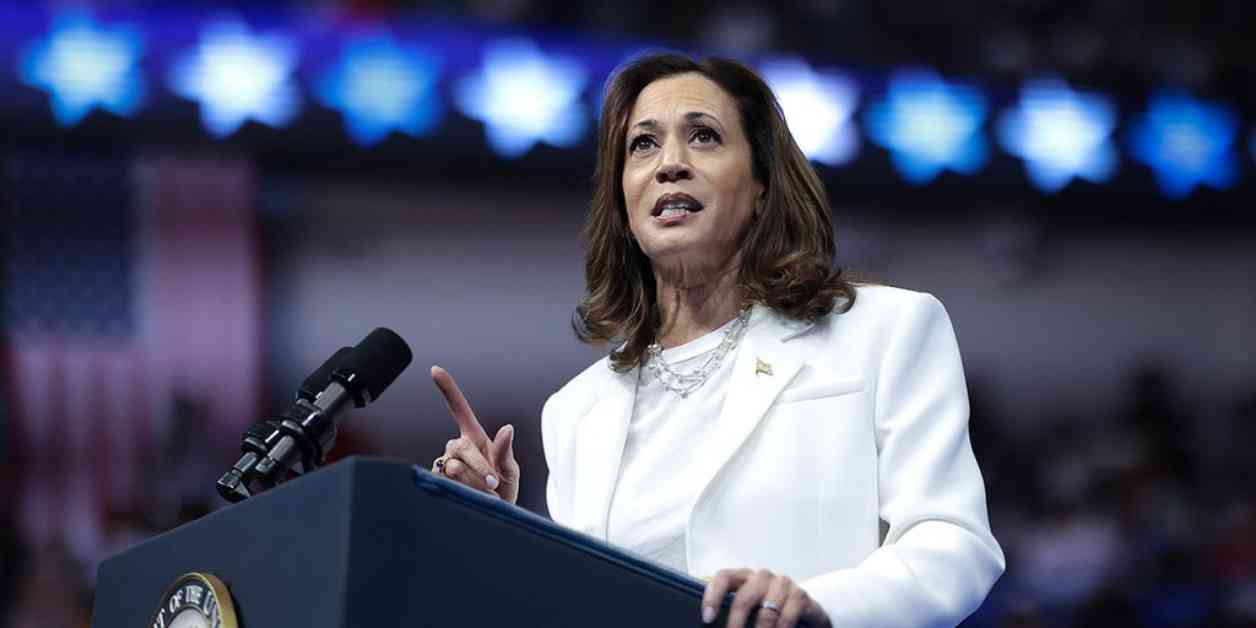Following the recent decision by the United Kingdom to pause some arms shipments to Israel, there is growing speculation about Vice President Kamala Harris’s stance on potentially following suit. As the conflict between Israel and Hamas continues to escalate, Harris faces mounting pressure from progressives to take a tougher stance on Israeli Prime Minister Benjamin Netanyahu. While Harris has expressed her unwavering commitment to Israel’s defense, her position on halting weapons shipments to the Middle Eastern nation remains ambiguous.
Harris’s Response to Calls for Action
During a recent interview, Harris was questioned about whether she would deviate from President Joe Biden’s approach to the conflict in Gaza. In response, Harris indicated that she did not intend to change course but emphasized the urgent need for a peace agreement to end the violence. Despite repeated inquiries about the possibility of withholding U.S. weapons shipments to Israel, Harris refrained from providing a clear answer.
While Harris’s campaign has not officially addressed the issue of halting arms shipments, her reluctance to offer a definitive stance has raised concerns among those advocating for a more assertive approach towards Israel. With the ongoing conflict resulting in significant casualties and humanitarian crises, the pressure on Harris to take decisive action continues to mount.
The Human Cost of the Conflict
The toll of the conflict in Gaza is staggering, with reports indicating that over 42,000 Palestinians have lost their lives since the outbreak of violence in October. The situation has only worsened in recent months, with continued attacks and escalating tensions fueling further bloodshed and suffering among innocent civilians. The need for a swift resolution to the conflict has never been more urgent, as the region grapples with the devastating impact of prolonged violence.
Harris’s focus on the importance of reaching a peace agreement underscores the critical need to address the root causes of the conflict and find a lasting solution that ensures the safety and security of all parties involved. While her commitment to Israel’s defense is unwavering, Harris recognizes the pressing need for a comprehensive peace deal that addresses the underlying grievances fueling the ongoing violence.
International Response to Arms Shipments
The decision by the United Kingdom to halt certain arms exports to Israel has sparked debate and raised questions about the implications for other countries, including the United States. Concerns about the potential misuse of these weapons in violation of international law have prompted calls for greater scrutiny and accountability in arms sales to conflict-affected regions.
As the global community grapples with the ethical and legal implications of arms transfers to countries engaged in violent conflicts, the issue of accountability and responsibility looms large. The United Kingdom’s decision to suspend arms shipments serves as a stark reminder of the need for greater oversight and adherence to international humanitarian law in the sale and transfer of weapons.
Netanyahu’s Handling of the Crisis
Israeli Prime Minister Benjamin Netanyahu has come under fire for his handling of the crisis, particularly in light of recent revelations about the deaths of Israeli hostages in a Hamas tunnel. The tragic loss of innocent lives has reignited calls for a resolution to the conflict and intensified pressure on Netanyahu to secure a hostage deal that addresses the humanitarian crisis unfolding in Gaza.
Criticism of Netanyahu’s leadership has mounted in recent days, with widespread protests demanding accountability and swift action to end the violence. The plight of Israeli-American hostages, including Hersh Goldberg-Polin, has further underscored the urgent need for a diplomatic solution that prioritizes the safety and well-being of all individuals caught in the crossfire of the conflict.
As President Biden and Vice President Harris work tirelessly to broker a hostage deal and bring an end to the violence, the stakes have never been higher. With negotiations ongoing and hopes for a breakthrough on the horizon, the international community remains cautiously optimistic that a resolution to the conflict may be within reach.
In conclusion, Vice President Kamala Harris’s stance on halting weapons shipments to Israel remains a subject of intense speculation and debate. As the conflict in Gaza continues to escalate, the urgency of finding a peaceful resolution that addresses the root causes of the violence has never been more apparent. Harris’s commitment to Israel’s defense must be balanced with a steadfast dedication to promoting peace and stability in the region. Only through concerted diplomatic efforts and a commitment to upholding international law can a lasting solution to the conflict be achieved.




